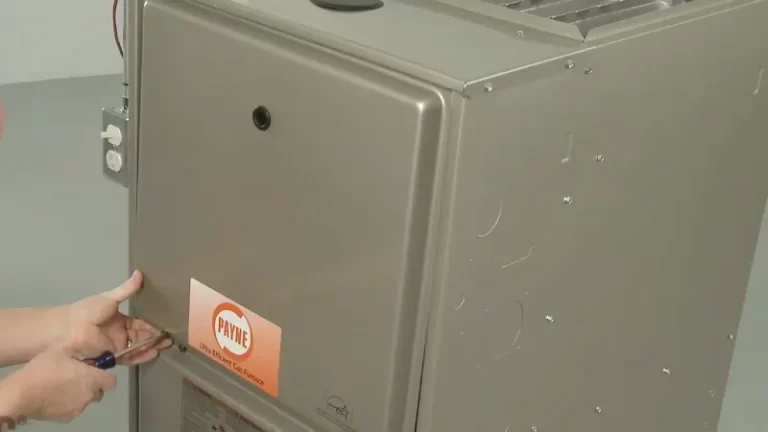Why Do Contractors Not Show Up? The Frustrating Truth & How to Fix It
You cleared your schedule and waited all morning. The hours tick by, but the promised contractor is nowhere to be seen. It’s one of the most maddening experiences for any homeowner.
This isn’t just an inconvenience; it stalls your project, disrupts your life, and leaves you feeling powerless. You are not alone in this frustration, as it’s a widespread issue that plagues the home improvement industry.
You'll Learn About
Unmasking the Reasons: Why Your Contractor is a No-Show
Understanding why contractors disappear can feel like solving a mystery. While it’s easy to assume the worst, the reasons often stem from a combination of poor business practices, industry pressures, and sometimes, simple human error.
Overwhelmed by Juggling Too Many Jobs
The most common culprit is poor scheduling and overbooking. A contractor might accept your project to secure the work but underestimate the time needed for their other ongoing jobs. They are often juggling multiple sites, deadlines, and clients simultaneously.
Your small bathroom remodel might get pushed aside when a crisis erupts on a larger, more lucrative kitchen renovation. This balancing act frequently fails, leaving homeowners like you waiting by the door.
The Domino Effect of Supply and Labor Shortages
The construction industry often faces unpredictable delays. A contractor might not show up because they are waiting for a crucial material delivery or a key subcontractor, like a plumber or electrician, didn’t show up for them.
These delays have a cascading effect. They can’t start on your flooring until the custom-ordered tiles arrive, so instead of calling to explain, they simply don’t appear, hoping the problem resolves itself soon.

Cash Flow Problems and Underbidding
Many contractors, especially smaller operations, struggle with cash flow. They might have underbid your project just to win the job, only to realize later that they can’t afford the materials or labor to complete it profitably.
In these unfortunate cases, they may abandon your project to take on a new one with a healthier profit margin. This leaves your initial deposit spent and your project in limbo.
Communication Breakdown: The Skill They Didn’t Learn
An alarming number of contractors are skilled artisans but poor communicators. They excel at their trade but lack the basic business skills of managing client expectations and providing timely updates.
Instead of making a difficult phone call to announce a delay, they choose avoidance. This silence is often misinterpreted as disrespect when it’s actually a symptom of poor communication habits.
Your Proactive Playbook: How to Hire a Reliable Contractor
You can’t control a contractor’s schedule, but you can control your hiring process. Taking deliberate, preventative steps is the single best way to protect your project, your timeline, and your sanity. Never let a contractor start work without a solid plan.
Step 1: Become a Vetting Expert
The foundation of a successful project is choosing the right person. Do not skip the due diligence phase. Start by asking for proof of licensing and insurance; a legitimate professional will provide this without hesitation.
Read online reviews from multiple sources and ask for at least three recent references—and actually call them. Ask the references specific questions about communication, timeliness, and budget adherence.
Step 2: The Contract is Your Shield
A handshake is not a contract. A detailed, written agreement is your most powerful tool. It should clearly outline every aspect of the project to prevent any misunderstandings down the road.
Your contract must include a specific scope of work, detailing every task. For instance, when planning a complex job, it’s not enough to say “build a wall.” You might need to specify details as granular as how to screw 2×4 perpendicular to ensure it meets your standards. A clear scope protects both you and the contractor.
Furthermore, insist on a payment schedule tied to project milestones. A small down payment is standard, but never pay the full amount upfront. Payments should be made as specific portions of the work are completed to your satisfaction.
| Contractor Red Flag | What It Really Means | Your Best Action |
|---|---|---|
| Requests a large cash deposit upfront. | They may have cash flow problems or intend to use your money for another job. | Stick to a milestone-based payment schedule outlined in the contract. |
| Cannot provide proof of license or insurance. | They are not a legitimate professional. You will be liable for accidents. | Immediately disqualify them from consideration. |
| Lacks a professional contract and prefers a verbal agreement. | This leaves room for disputes over scope, cost, and timelines. | Insist on a detailed written contract or find another contractor. |
| Is vague about timelines and project details. | They likely lack organizational skills or are overbooked. | Press for specifics. If they can’t provide them, move on. |
| Pressures you to make a decision immediately. | This is a high-pressure sales tactic designed to stop you from getting other bids. | Take your time and get at least three quotes for your project. |
Step 3: Establish Clear Communication Protocols
Before the first hammer swings, agree on communication. How and when will you receive updates? A daily text message or a brief end-of-week email can make a world of difference.
This sets a professional tone and holds the contractor accountable. When issues arise, such as a need to seal a leaking electrical conduit, there’s already an established channel for discussing solutions.
What to Do When Your Contractor Ghosts You
Even with the best vetting, you might find yourself with a disappearing contractor. If they stop showing up and stop answering your calls, you need to take systematic action.
Document Everything Meticulously
Start by documenting every missed appointment and every attempt to communicate. Keep a log of calls, texts, and emails. This paper trail is crucial if you need to escalate the situation.
Take photos of the unfinished work. A clear record of the project’s state is essential for any potential dispute, proving what was left undone.
Send a Formal Written Notice
If informal communication fails, it’s time to get formal. Send a demand letter via certified mail that outlines the problem, the dates they missed, and a deadline for them to return to the job and complete the work.
This letter often signals that you are serious and can prompt a response. It also serves as a legal document showing you made a good-faith effort to resolve the issue before taking further action.
Know Your Legal Options
If the contractor still doesn’t respond, it may be time to consult with an attorney or file a claim in small claims court to recover your deposit or funds paid for uncompleted work. Your contract will be the centerpiece of your case.
Remember that specialized jobs, like knowing how to remove a cast iron fireplace insert safely, require professionals who value their reputation. Leaving honest, factual online reviews can also warn other homeowners and sometimes motivate the contractor to finally resolve the issue with you.
Ultimately, preventing a no-show contractor begins and ends with proactive diligence. By establishing clear expectations and a legally sound contract, you empower yourself and create a professional framework for a successful project.
Frequently Asked Questions
Why do contractors not show up for scheduled appointments?
There are several reasons why a contractor might not show up. They may have overbooked themselves with too many jobs, or a previous job may have run longer than expected. Sometimes, they prioritize larger or more profitable projects, and unfortunately, some may simply have poor communication and organizational skills.
Is it common for contractors to be unreliable with scheduling?
Yes, scheduling issues are a frequent complaint among homeowners. Many contractors are small business owners managing multiple projects, and unforeseen issues at one job, like supply delays or unexpected repairs, can have a cascading effect on their schedule for the day or week.
What should I do if my contractor is a no-show?
First, try to contact them directly through a call and a text message to see if there’s a simple explanation. If you don’t get a response, send a formal email documenting their missed appointment. This creates a paper trail in case the issue escalates and you need to terminate the contract or take further action.
How can I find a reliable contractor who will show up?
Thoroughly vetting contractors is key to avoiding no-shows. Always check references and read online reviews to gauge their track record for punctuality and communication. Also, ensure you have a detailed written contract that outlines a clear work schedule and includes penalties for missed deadlines.
Should I pay a contractor before the work is done?
It is standard to pay a deposit so the contractor can purchase materials, but you should never pay for the entire project upfront. A clear payment schedule should be part of your contract, with payments tied to the completion of specific project milestones. This gives the contractor an incentive to show up and complete the work as agreed.


